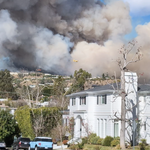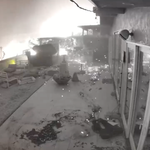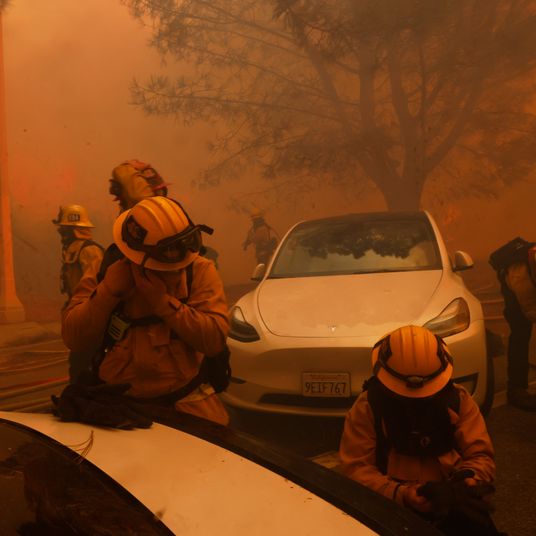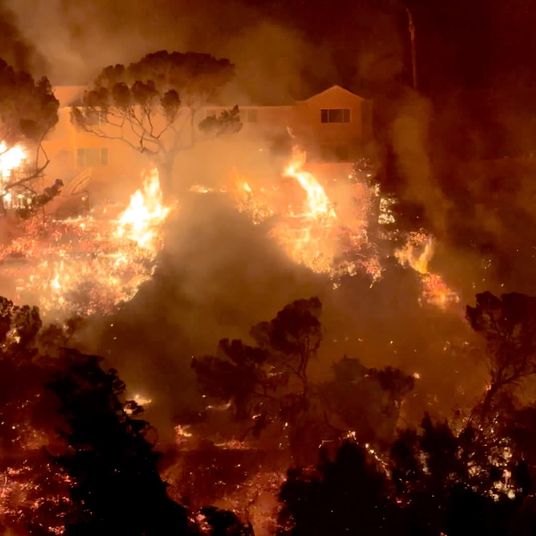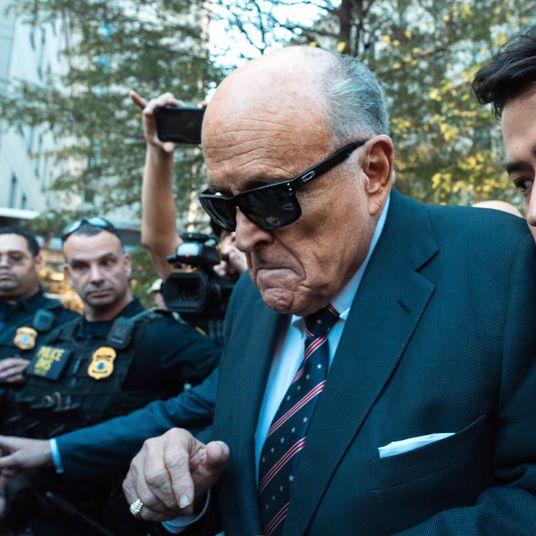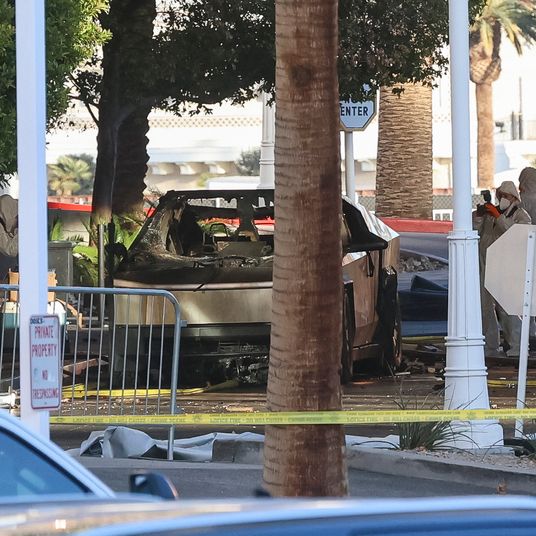
In the wake of Brian Williams’s on-air apology for exaggerating (or lying, or perhaps just misremembering) a story he’s told many times about his helicopter coming under fire during the Iraq War, NBC has remained silent. But now sources tell the Daily News that the network is launching an internal investigation, led by Richard Esposito, to look into Williams’s claims.
It’s seeming more and more unlikely now that the scandal surrounding one of NBC’s biggest stars will blow over, as the NBC Nightly News anchor’s stories about Hurricane Katrina have also come into question. Over the years, Williams has described seeing a body float by his hotel in the French Quarter, though the area was not heavily flooded like the rest of New Orleans, and made some other strange claims about his time reporting on the storm.
On Thursday, GotNews highlighted a video in which Williams describes the morning after the storm hit. “When you look out of your hotel room window, in the French Quarter, and watch a — a man float — float by face-down, when – when you see bodies that you last saw in Banda Aceh, Indonesia, and swore to yourself that you would never see in your country … ” Williams says in a 2006 interview with former Disney CEO Michael Eisner.
As Eisner makes clear in the clip, Hurricane Katrina is a key moment in the Brian Williams origin story. He had taken over for NBC Nightly News anchor Tom Brokaw less than a year before and was one of the first reporters on the scene. His coverage of the storm earned the show a Peabody Award and an Emmy, among other accolades.
The question is whether there was enough water in the French Quarter for Williams to see a man “float by face-down” right outside his hotel. In the special In His Own Words: Brian Williams on Hurricane Katrina, which first aired in October 2005 on the Sundance Channel, the anchor recalls the the morning of August 30, 2005 (but does not mention seeing a body at this point). “I went to the window and I remember thinking what the hell is that?” he says. “There were, as best I can describe it, there were shards of light going across the street. Like someone had put up a disco ball over the French Quarter overnight. And I knew exactly what I was looking at. That was water. The levees had given way overnight.”
The French Quarter is on high ground, and there are numerous reports on how the area was mostly spared. However, that doesn’t prove that Williams concocted an elaborate lie about waking up to flood water that wasn’t there. Shortly after the storm, the New York Times reported that the French Quarter “remained mostly dry,” but the accompanying map shows that some streets on the edges of the district were flooded. An Associated Press report from August 30, 2005 says that on Canal Street, which is one block past the boundary of the French Quarter, “Some in the crowd splashed into the waist-deep water like giddy children at the beach.”
It does seem that the story about the body has shifted over the years. In a blog post on August 30, 2005, Williams does not mention a floating body, but writes, “Tuesday, we found the body of a dead man on the street corner.” (The footage is undated, but four and a half minutes into this video, also from In His Own Words, Williams shows a body on a street corner.) In the clip below from a 2010 interview with Charlie Rose, Williams mentions a floating body, but he doesn’t spot it from his hotel room. “I actually heard someone say to me on the street of New Orleans ‘be careful because there’s a body floating this way,’” he says.
That’s not the only part of Williams’s Katrina story that’s come into question. Four minutes into the video below, Williams recalls more incredible events from New Orleans. (To add an extra layer of awkwardness, he’s interviewed by Tom Brokaw, who “Page Six” claims “wants Williams’ head on a platter” over the Iraq fib.) “I accidentally ingested some of the flood water,” Williams says. “I became very sick with dysentery. Our hotel was overrun with gangs. I was rescued in the stairwell of a five-star hotel in New Orleans by a young police officer. We are friends to this day.”
Dr. Brobson Lutz, a former city health director who manned an EMS trailer in the French Quarter during the storm, tells the New Orleans Advocate that he finds that claim dubious. “I saw a lot of people with cuts and bruises and such, but I don’t recall a single, solitary case of gastroenteritis during Katrina or in the whole month afterward,” he said. As for Williams drinking flood water, Lutz said, “I don’t know anybody that’s tried that to see, but my dogs drank it, and they didn’t have any problems.”
Still, this isn’t conclusive proof that Williams was lying about getting sick. There were fears of a dysentery outbreak after the storm, and according to a CDC report from September 2005, some evacuees did suffer from “diarrheal disease,” but not dysentery.
CDC received reports of clusters of diarrheal disease among persons in evacuation centers in Louisiana, Mississippi, Tennessee, and Texas. In Louisiana, approximately 20 clusters of diarrheal illness in evacuation centers were reported and investigated. In Memphis, Tennessee, gastrointestinal illness was the most common acute disease complaint among evacuees. Approximately 1,000 cases of diarrhea and vomiting were reported among adult and child evacuees in Mississippi and Texas; tests detected norovirus in stool specimens from patients in Texas. Sporadic nontyphoidal Salmonella, nontoxigenic V. cholerae O1, and other infections were identified. No confirmed cases of Shigella dysentery, typhoid fever, or infection by toxigenic V. cholerae O1 were reported in evacuees from Hurricane Katrina. Three weeks after the initial displacement caused by Katrina, few cases of diarrheal disease were being reported.
There’s also the question of whether Williams actually witnessed the suicide in the Superdome. In the Brokaw interview, he says “We watched, all of us watched, as one man committed suicide.” Six and a half minutes into the video below, from In His Own Words, Williams says, “We’d heard the story of a man killing himself falling from the upper deck.”
Many members of the media made false reports in the chaos after Hurricane Katrina, and we know that Williams witnessed many disturbing events because hours of NBC News footage was broadcast live on TV. It’s possible that over the years, Williams conflated events, said he witnessed something he actually watched a correspondent report on, or assumed his illness was something more serious than it actually was. It’s also possible he knowingly exaggerated key facts to bolster his personal mythology. Either way, now that it looks like the Iraq story may be part of a pattern, Williams will probably have to recount his Katrina experiences again, and with much clearer details.
An “NBC truth squad” has reportedly been designated to look into Williams’s Katrina claims, and NBC News president Deborah Turness told the team she’s putting “100 percent of her time, day and night, to sort this out.” Sources also told the Daily News that Williams himself showed up at the NBC News morning meeting Friday and personally apologized to the group, saying, “This one’s on me.”



